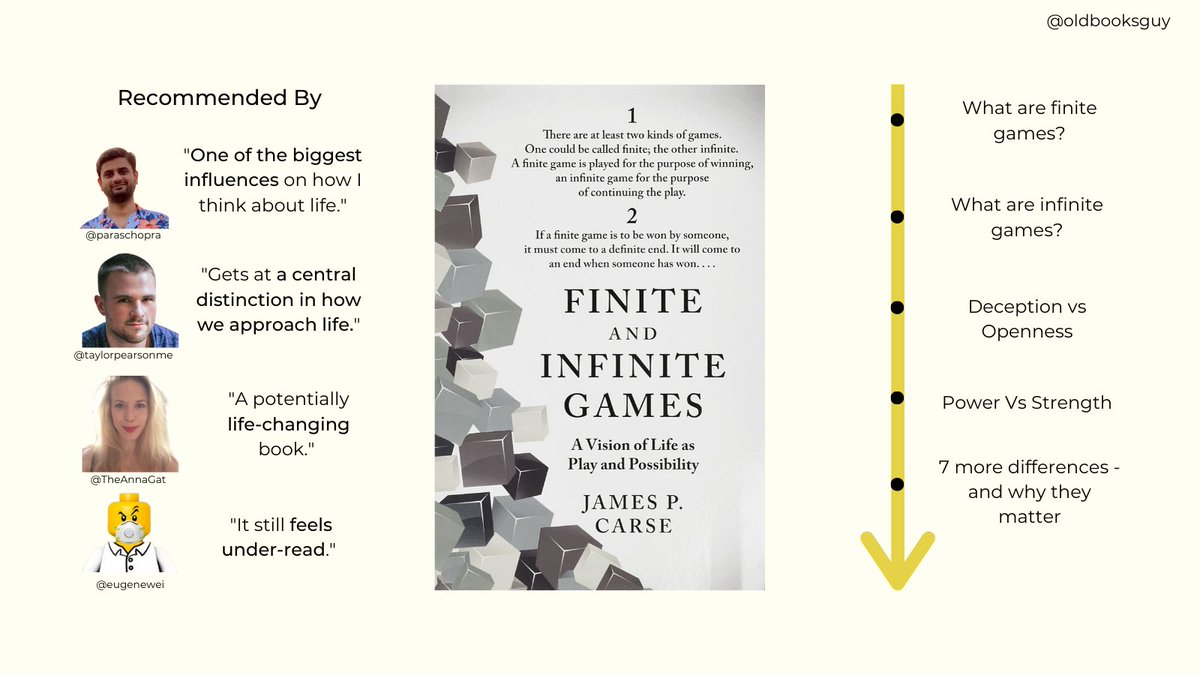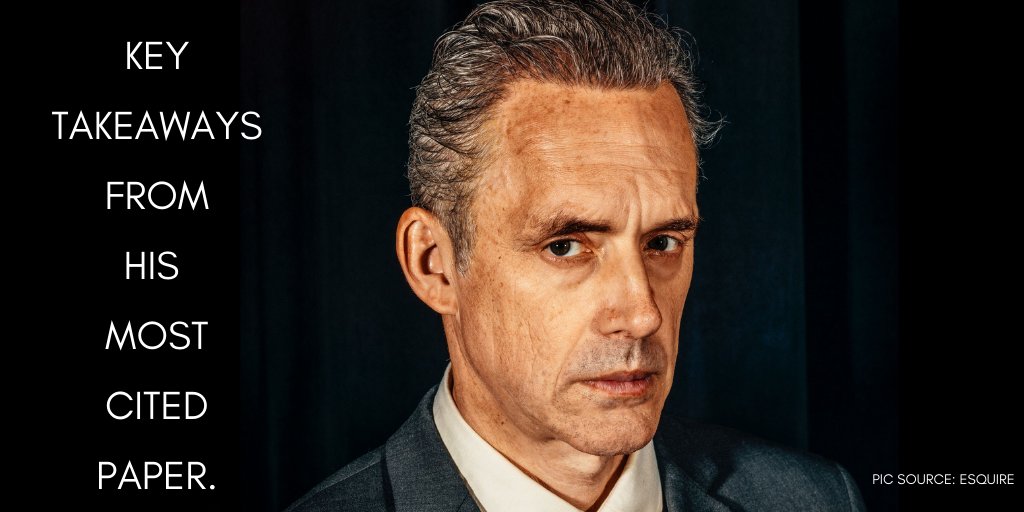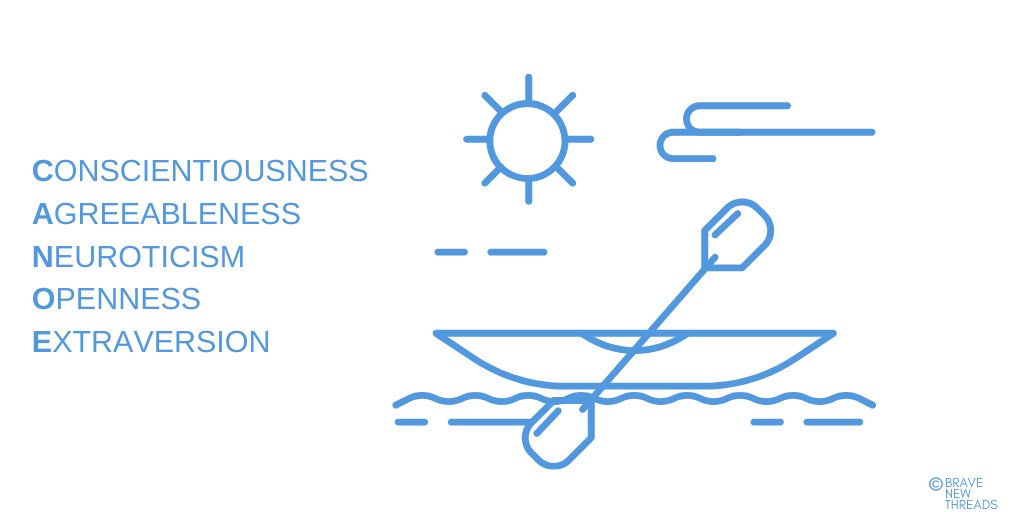
Discover an old but brilliant book today: Systemantics by John Gall (1975)
The book asks big questions: How Do Systems Work? How Do They Fail?
This book comes with a recommendation from no less than @jordanbpeterson.
A thread with top insights and examples 👇👇👇
The book asks big questions: How Do Systems Work? How Do They Fail?
This book comes with a recommendation from no less than @jordanbpeterson.
A thread with top insights and examples 👇👇👇

First: What is a system?
A family is a system of human parts.
A machine is a system of mechanical parts.
A factory has both human and mechanical parts.
Understanding systems is crucial because "Everything Is A System."
Let's look at 8 major reasons systems fail.
A family is a system of human parts.
A machine is a system of mechanical parts.
A factory has both human and mechanical parts.
Understanding systems is crucial because "Everything Is A System."
Let's look at 8 major reasons systems fail.
#1: Communication Breaks Down.
Information "decays" inside systems.
The boss's orders are misunderstood by his managers.
Their orders are then misheard by the employees, who then misunderstand each other.
This game of Chinese whispers happens at all levels, all the time.
Information "decays" inside systems.
The boss's orders are misunderstood by his managers.
Their orders are then misheard by the employees, who then misunderstand each other.
This game of Chinese whispers happens at all levels, all the time.

#2: Systems Can't Perceive Humans
The hospital sees charts, not patients; the govt sees certificates, not citizens
Lal Bihari, an Indian farmer, was declared dead on a govt form by a corrupt bureaucrat.
The mistake was corrected after 20 years.
He had no rights for 2 decades.
The hospital sees charts, not patients; the govt sees certificates, not citizens
Lal Bihari, an Indian farmer, was declared dead on a govt form by a corrupt bureaucrat.
The mistake was corrected after 20 years.
He had no rights for 2 decades.
#3: Complex Systems Oppose Their Own Function.
Example:
Aswan Dam was built to control floods.
But it redirected Nile's fertilising sediments.
Factories were setup to make artificial fertilizer.
Factories used up all the dam's energy.
Example:
Aswan Dam was built to control floods.
But it redirected Nile's fertilising sediments.
Factories were setup to make artificial fertilizer.
Factories used up all the dam's energy.
#4: The System Takes Credit Where None Is Due.
The author calls this the "Manager's Mirage."
An example for this would be the public school system claiming responsibility "for the literary works of Faulkner, Hemingway, and Arthur Miller, since it taught them to write."
The author calls this the "Manager's Mirage."
An example for this would be the public school system claiming responsibility "for the literary works of Faulkner, Hemingway, and Arthur Miller, since it taught them to write."
#5: Systems Don't Go Away: "The Old System Is The New Problem."
In the 1980s, the US funded the anti-Soviet Mujahideen in Afghanistan.
The Soviet Empire fell; the Mujahideen stuck around.
Its members were channeled into the Al-Qaeda, who the US continues to fight till today.
In the 1980s, the US funded the anti-Soviet Mujahideen in Afghanistan.
The Soviet Empire fell; the Mujahideen stuck around.
Its members were channeled into the Al-Qaeda, who the US continues to fight till today.
#6: Systems grow until they die of absurdity
Egyptian kings were buried in simple brick structures that "gradually became more elaborate."
They eventually became the Pyramids
Financing these "monsters of pride" created "unbearable stress" that brought down the Egyptian state.
Egyptian kings were buried in simple brick structures that "gradually became more elaborate."
They eventually became the Pyramids
Financing these "monsters of pride" created "unbearable stress" that brought down the Egyptian state.
#7: New Capabilities Mean New Flaws
The smartphone has made communication faster, but it has also perverted it in new ways.
Systemantics gives the example of flying machines and how they've become more powerful and more disabled at the same time:
The smartphone has made communication faster, but it has also perverted it in new ways.
Systemantics gives the example of flying machines and how they've become more powerful and more disabled at the same time:

But despair not.
Systems are unruly beasts, but there are ways to deal with them productively!
In particular, the book has 5 great suggestions.
You've grasped the problem - now let's look at some solutions!
Systems are unruly beasts, but there are ways to deal with them productively!
In particular, the book has 5 great suggestions.
You've grasped the problem - now let's look at some solutions!
#1: Design Systems Downhill From Human Nature
The book calls it the "Systems Law of Gravity (S.L.O.G.)"
Don't fight human nature, just roll with it.
Here's an example: Lotteries.
The book calls it the "Systems Law of Gravity (S.L.O.G.)"
Don't fight human nature, just roll with it.
Here's an example: Lotteries.

#2: Cherish Your Bugs. STUDY THEM.
Fleming forgetfully left lab bacteria in an open Petri dish.
Penicillium fungus settled on the bacteria, killing their growth
This was a "bug" - but instead of ignoring it, Fleming studied it
Antibiotics were born, changing medicine forever.
Fleming forgetfully left lab bacteria in an open Petri dish.
Penicillium fungus settled on the bacteria, killing their growth
This was a "bug" - but instead of ignoring it, Fleming studied it
Antibiotics were born, changing medicine forever.
#3: There's no neutral ground; you're always inside a system, & always have blindspots.
Systemantics: "The reader is invited to ask himself: Is it possible that I am seeing the world from inside a System? The answer is always Yes. The relevant question is simply: Which System?"
Systemantics: "The reader is invited to ask himself: Is it possible that I am seeing the world from inside a System? The answer is always Yes. The relevant question is simply: Which System?"
#4: There is no permanent solution, only a "Dance Of Accommodation."
"The word ’Solution’ is only a fancy term for the Response of System A (ourselves) to System B (the Problem). And System B is sure to Kick Back in response to our Response, and then we must respond once again."
"The word ’Solution’ is only a fancy term for the Response of System A (ourselves) to System B (the Problem). And System B is sure to Kick Back in response to our Response, and then we must respond once again."
#5: Loose Systems Last Longer And Work Better
@nntaleb talks about the redundant 2nd kidney in our body
To a consultant who hates inefficiencies, the kidney occupies space without adding value
Until the 1st kidney fails, of course
Systems that bet on nothing going wrong fail.
@nntaleb talks about the redundant 2nd kidney in our body
To a consultant who hates inefficiencies, the kidney occupies space without adding value
Until the 1st kidney fails, of course
Systems that bet on nothing going wrong fail.
Check out @jordanbpeterson's book recommendations list, and tell me which one I should break down next jordanbpeterson.com/great-books/
Options:
Options:
Here's @dvassallo riffing on centralization. 

Here's @normonics riffing on how large systems have unpredictability baked into them. 

Thanks for reading!
Follow @oldbooksguy for more such content!
Click here if you want to be notified on Whatsapp when I publish my next thread: wa.me/message/P4QLGG…
Follow @oldbooksguy for more such content!
Click here if you want to be notified on Whatsapp when I publish my next thread: wa.me/message/P4QLGG…
• • •
Missing some Tweet in this thread? You can try to
force a refresh











